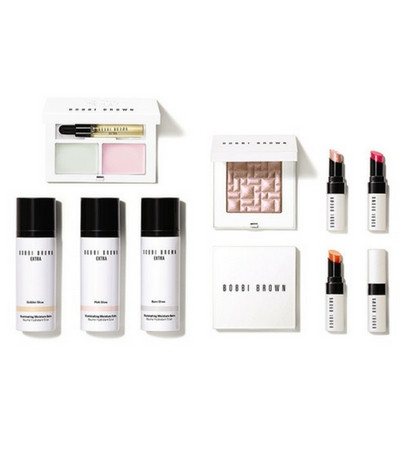How to shift to a plant-based diet (and not hate it)
Flick through your Netflix menu lately and you’re bound to stumble across a multitude of health-promoting documentaries, advocating the shift from eating meat and animal products toward adopting a plant-based and planet-saving diet.
But before you go thinking a plant-based diet is all kale chips and raw cauliflower (no fun at all), we’re here to shed some light on what exactly this style of eating is, and to demystify any common misconceptions around plant-based eating.
We caught up with Sarah Tanner, founder and co-chief of Greenleaf Organics in Auckland, to get the inside scoop on plant-based diets.

Q: What does a plant-based diet mean?
A: It’s basically a vegan “diet” although I try not to use the word diet! It means eating everything under the sun apart from animal products.
Q: Why is a plant-based diet good for you?
A: As long as it’s plant-based whole-food it is quite possibly the healthiest way to eat and nurture your body, mind and spirit…and the planet! Vegan can be misguided as a lot of people make the switch and end up eating chips and processed junk all day. That’s not the goal. Plant-based whole-food is eating a full spectrum of the rainbow plus healthy plant proteins like beans, pulses and nutrient dense ingredients like quinoa, buckwheat, millet and so much more. It is rich is vitamins, minerals (especially if you choose organic), antioxidants (of which animal products have none), fibre, essential fats and beauty boosting goodness. Plus you are contributing to saving the planet, literally! Animal agriculture is the number one cause of Co2 emissions, more than all modes of transport put together! And the leading cause of disease! More people are waking up to this with the help of amazing documentaries like What The Health which I recommend everybody to watch.
Q: What are some of your favourite meat alternatives?
A: When you are plant-based, everything is an alternative. Plants are rich in digestible protein, without the cholesterol and saturated fats and suffering of the animal. If I’m making a vegan take on a meaty classic, things like TVP (textured vegetable protein), and tofu are great alternatives, as well as nuts, lentils, there are heaps of ways to use plants in recipes and they actually end up tastier!
Q: Can you offer us some tips on how to transition to a plant-based diet for those who are thinking about it but struggling to make the change?
A: Absolutely! I always say to go easy on yourself. Too much change too quickly is not maintainable. It’s like trying to run a marathon without any training! Very hard! One step at a time, and educate yourself with your why. Watch documentaries, read books, find out all the reasons that you should be going plant-based, and that helps to give you drive and motivation. I always found it really hard to find a personality to inspire me to be plant-based when I made the change, so I’m really conscious of helping people and not judging people, because at the end of the day, I want more people to live this way!
Start by switching out dairy milk for plant-milk in your coffee, having meat-free days, and then step by step, start to increase those days. Get a friend to join you. Have a vegan pot-luck dinner! You’ll be saving money, so treat yourself to a couple of vegan cookbooks, like my GLO Plant Power book. Often, it’s the ideas of what to cook that are the hardest!
I will also be launching an online guide soon for steps and tools to go plant-based, so watch this space!
Q: A common misconception about plant-based diets is that they lack in vitamin B12. What are your thoughts on this?
A: A very fair thought…however, it’s a bit of a grey area. We actually produce B12 in our small intestine, but in some cases, it is not always absorbed. Before spending loads of money on supplements, I would suggest getting your levels tested. If you are concerned they are low, I would recommend a liposomal B12 supplement as it’s more absorbed rather than peed out! The thing is, most people on a standard, animal-eating diet, are deficient in way more areas of nutrition than a healthy person on a whole-food plant-based diet. It’s just that the plant-based variety is still so left-field for so many people and challenging on so many levels of industry, that it is pulled apart and criticised so much. If B12 is your only concern, that’s pretty amazing!
Q: Tell us your favourite plant-based recipe?
A: Too many to choose from! I self-published a plant-based cookbook titled GLO that is a record of all my go-to’s. They are quick, easy, affordable, and don’t require hours of prep. This is one of our faves at home, from the book…The Tokyo Soba Noodle Salad...

Tokyo Soba Salad
Ingredients – serves 4
2 packets soba noodles, look for 100% buckwheat
1 cucumber, spiraled or julienned
For the dressing
1 tablespoon tahini
2 tablespoons rice wine vinegar
2 tablespoons lime juice
1 teaspoon sesame oil
1 tablespoon tamari
1 teaspoon grated fresh ginger root
to garnish, black sesame seeds, pickled ginger and fresh coriander leaves
How To:
Start by preparing the dressing by placing all the ingredients into a blender and whizzing until smooth. Set aside.
Spiral or julienne the cucumber and set aside.
Cook the noodles as per the packet instructions. The only take a few minutes so don’t walk away!
Drain the noodles once they have cooked, gently stir through the dressing and garnish.
Keen to make the switch? Head to our Facebook page to win a copy of Sarah's Book - GLO! 
Head here for more.




